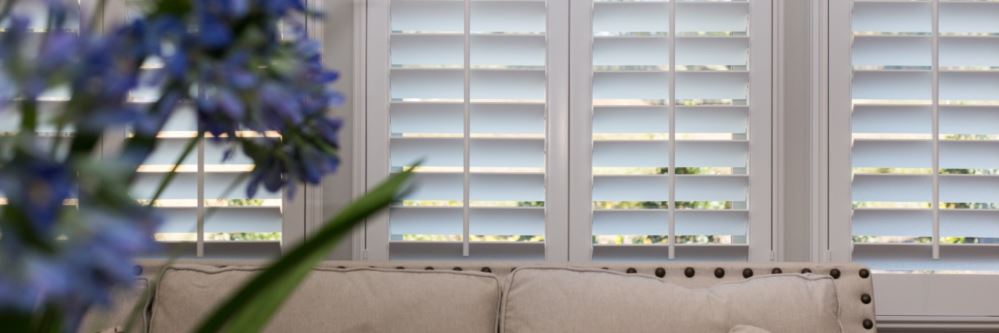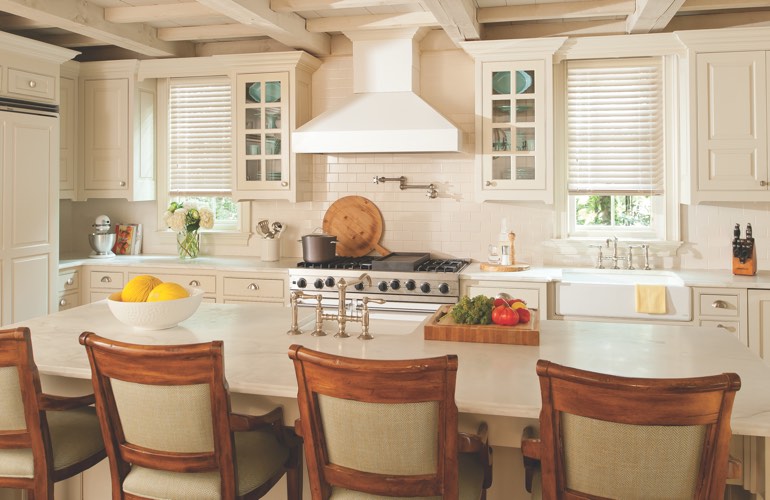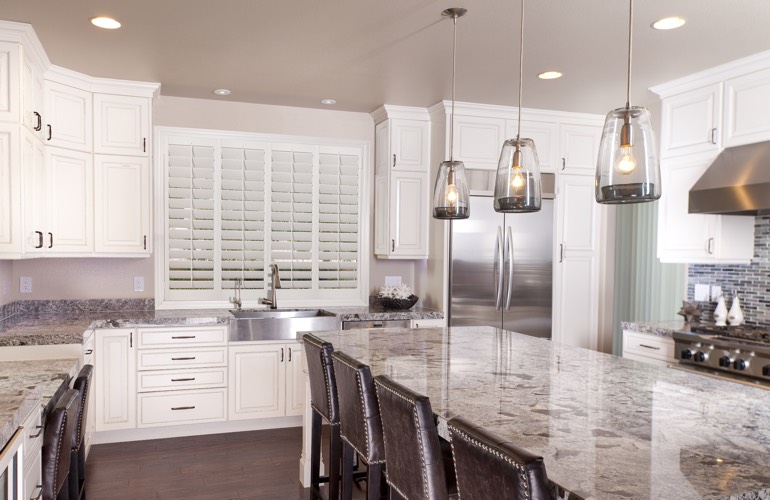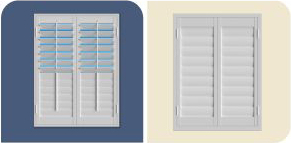
Why Some Homeowners In Philadelphia Confuse Plantation Blinds And Plantation Shutters
When Philadelphia homeowners ask us for a quote, they may mistakenly ask for plantation blinds. But plantation blinds is the wrong term for the window covering they have in mind.
What most people refer to as “plantation blinds” are in fact plantation shutters.
The word “plantation” is synonymous with interior shuttersnot blinds. And the term “plantation” refers to the style of the window treatment as it relates to the size of the horizontal louvers.
Blinds have thin horizontal slats that are usually called slats. But these slats are not wide enough or thick enough to pass for “plantation” style.
Some consumers and even blind companies call blinds “plantation,” when that word has historically been associated with custom interior louvered shutters. Plantation shutters may look like blinds from a distance. But these two window treatments differ in numerous ways.
How Plantation Shutters Are Different From Blinds


Plantation Shutters Are More Durable Than Blinds
Premium plantation shutters can be made from reclaimed wood, synthetic wood, or hardwood. Any of these materials result in a sturdy window treatment that lasts for many more years than a blind. And when the paint on your shutters is infused with UV stabilizers, your plantation shutters will not lose their original color.
In contrast to shutters, blinds have a series of cords that hold the slats up. And most have a wand to adjust the slats. Those two elements, as well as the thin slats, are susceptible to breaking.
Blinds don’t give you control over light and temperature. And they tend to yellow after years in the sun, which is not the case with quality shutters.
They’re Highly Energy Efficient
The material a window treatment is made from greatly affects its energy efficiency. Plantation shutters, with their synthetic wood and wood louvers, are the most energy-efficient window treatment in Philadelphia. And it’s the exclusive weatherstripping on Polywood® shutters that’s made to help insulate against airflow. That’s how Polywood insulates 1600% better than an aluminum blind.
When you close a blind, the slats aren’t tight against each other. There’s room on both sides of the blind where air can escape through. And there are holes where the cords are. All these weak points make blinds less energy efficient than well-built plantation shutters that close with little to no gaps.
They Highlight The Shape Of Your Window
Another thing to keep in mind is that the only shape blinds come in is rectangular. And when you have windows that are circular, arched, triangular, or octagonal, blinds will hide the shape rather than highlight it.
Plantation shutters however are perfect for specialty-shaped windows. They are custom built to account for every arch, angle, and corner. The completed product is a window treatment that makes the window shape pop, operates smoothly, and looks stunning.
They Give Your Home A Custom Look
Yes, you can get blinds in a variety of finishes, colors, and textures. They can even be motorized and cordless. But however you mix and match their options, blinds don’t have the custom look that shutters have.
Plantation shutters in Philadelphia come in Ovation® wood, reclaimed wood, and Polywood. And there’s more than 300,000 combinations of custom options of these window treatments so they fit your décor.
Shutters are usually installed with a frame that accentuates the corners of the window and highlights the shutter panels. The shutters become a fashion statement that wows. And as a permanent fixture, they increase your home’s appraisal value.
One unique idea for custom window treatments is to have the shutters made from reclaimed wood. No two shutter panels - no two shutter louvers - have identical marks, holes, or colors. It’s the ultimate custom window treatment you can find in the Philadelphia area.


